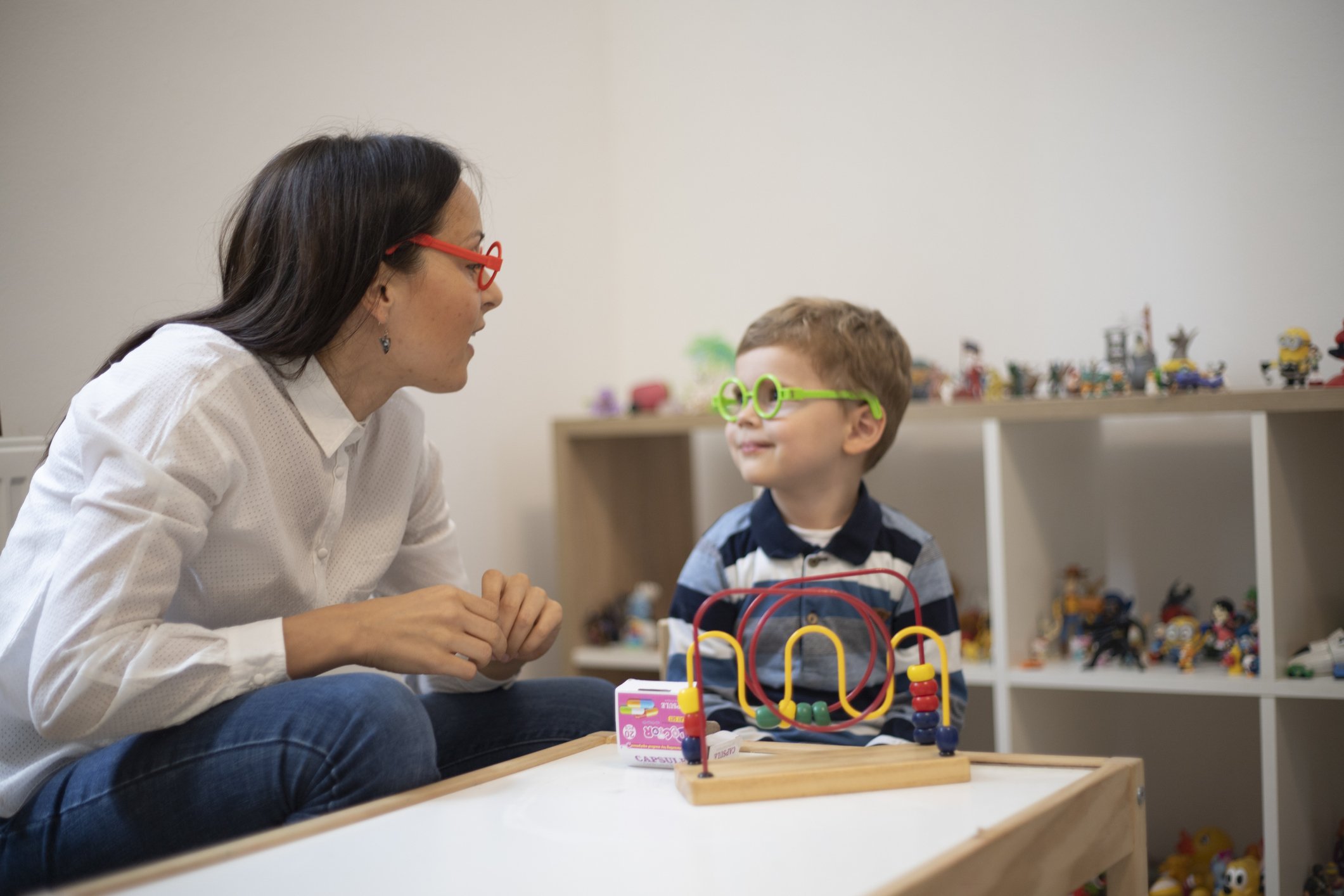Dr. Zarei has experience conducting psychological evaluations with neurodiverse individuals. She has experience diagnosing mental health conditions that can co-occur with autism, such as: attention-deficit/hyperactivity disorder, intellectual developmental disorders, anxiety, depression, trauma-related disorders, sleep-wake disorders, feeding and eating disorders, elimination disorders, communication disorders, and motor disorders.
Diagnostic evaluations include:
Thorough clinical interview to collect developmental/background information and current symptoms
Review of medical and educational records
Cognitive (intelligence) test
Autism-specific test: Autism Diagnostic Observation Schedule, 2nd Edition (ADOS-2)
The ADOS-2 is considered the gold standard for observing and identifying symptoms of ASD in children and adults
When indicated: additional emotional measures, projective measures, and/or specific learning disorder screening
Clients and/or caregivers and teachers are asked to electronically fill out forms to provide additional information regarding the individual’s current functioning in the home and school settings
At the conclusion of the evaluation, Dr. Zarei provides diagnoses, makes recommendations, and provides a copy of the evaluation report to the individual and/or caregiver(s)
Eligibility Criteria:
Age: Children 31-months to 65 years of age.
Communication Skills: Individuals who are nonverbal, have limited verbal skills, or are fluent in their communication are welcome. Please reach out to Dr. Zarei for a referral list for Spanish speaking provider recommendations.
Psychological evaluations for individuals across the lifespan with a diagnostic focus on autism spectrum disorder.
Services
What to Expect
The psychological evaluation process follows a 3-appointment model. The first appointment entails the clinical interview. The second appointment involves direct observation of the client during the testing appointment. The third appointment is reserved to review the test findings, diagnosis, and recommendations. Outside of the 3 appointments, Dr. Z engages in completing a records review, scoring, interpreting, and report writing without the caregiver and/or client present.
-
Clients and/or caregivers will be asked to complete electronic intake paperwork forms prior to scheduling an interview appointment. Dr. Zarei will conduct a thorough clinical interview to gather developmental/background information and learn about current symptomatology. Be prepared to answer specific questions about you or your child’s behavior. The clinical interview typically lasts 60-90 minutes and can be conducted in-person or via telehealth. Following the interview, Dr. Z will send testing forms for the client and/or caregiver and teacher to complete electronically. In total, these forms generally take 1-2 hours to complete and provide helpful information pertaining to what the client and/or caregivers and teachers are noticing in the home and educational settings. After obtaining written consent, Dr. Zarei may request medical and/or educational records to review.
-
Psychological testing typically takes place from 8:30-11:30 AM. Depending on the client’s needs, this timeframe could vary. Caregivers of minors are expected to stay within the building, to aid in the testing process as needed, and to visit with their children during testing breaks. Clients and/or caregivers are encouraged to bring snacks, beverages, and a lot of praise for their children. It is optimal for the client to get ample rest the night prior and eat breakfast the morning of testing to optimize test performance. Regular medication can continue to be taken as prescribed the day of testing. Additional children besides the client are not permitted to be present during testing. This minimizes distractions to the client and the provider. If you have other children at home, please make arrangements to have another caregiver watch your children while the client participates in the evaluation.
Cognitive (intelligence) and academic ability testing tasks are similar to tasks individuals encounter in educational settings. These tests will be conducted on an iPad, in conjunction with some hands-on manipulatives. Autism-specific testing tends to be more play-based and socially engaging.
Due to the nature of ASD, which can involve natural drive towards familiarity and routine, preparing your child for an unknown process like a psychological evaluation may feel overwhelming. Social stories are created to help prepare children for what to expect and how to adaptively respond to various situations. They incorporate text and visuals that help to teach a new task and understand expectations for the child and those they will be interacting with. By presenting information in this literal way, children can better understand a new, maybe daunting, situation. They better understand what may come next and this allows them to anticipate and prepare. Click here to read a psychological testing social story with your child prior to their appointment.
-
An autism evaluation and autism diagnosis feel like a big deal. And they are. You may be nervous about doing this. A part of you may want to know and a part of you may not want to know. In my experience, most individuals and families who decide to complete the assessment process feel relief and have an increased understanding at the end of the process. Background information, test results, interpretation of the results, diagnoses, and recommendations will be included in a written report. Dr. Zarei will review the test results and their implications with the client and/or caregiver(s) and provide the client with a copy of the written report. The client and/or caregiver(s) are encouraged to ask questions during the feedback process to ensure they understand the test findings. Dr. Zarei can digitally send copies of the report to organizations the client and/or caregiver(s) have given permission for the psychologist to release information to.




